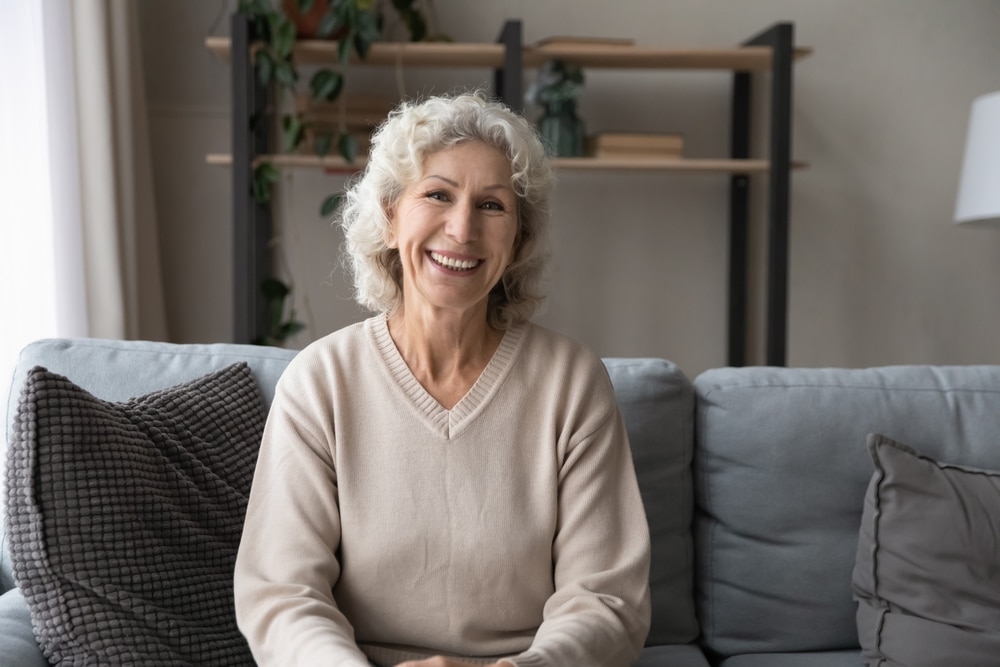Aging is a journey that few embrace, especially when it means losing one’s independence. For many, the idea of relocating to a distant nursing facility brings more fear than comfort. But what if there was a way to stay close to loved ones, maintain autonomy, and still have access to medical care right at home?
Hidden within backyards, an intriguing solution is quietly gaining traction. It’s neither a nursing home nor a guest house, but something far more personalized and revolutionary.
These small but mighty structures offer seniors the chance to remain a part of the family circle without sacrificing their privacy or safety. What exactly are they, and how can they change the way we think about elder care?
Aging and the Need for New Solutions
As we age, the loss of independence can be a challenging reality. Simple daily tasks often become overwhelming, leaving many elderly individuals in need of support. Traditional solutions, such as nursing homes, don’t always provide the desired outcome, both emotionally and financially. This is where granny pods step in as an innovative solution, allowing families to keep their loved ones close while maintaining a sense of independence.
Aging isn’t easy. The emotional toll, combined with the physical limitations that come with age, creates a growing need for new approaches to senior care. Granny pods offer a compassionate alternative to nursing homes, making it easier for families to care for aging loved ones without sacrificing space or peace of mind.

What Are Granny Pods?
Granny pods, also known as Accessory Dwelling Units (ADUs), are compact, modular homes designed to provide living space for elderly family members on the same property as the main house. These units are typically between 300 and 500 square feet and come fully equipped with all the essential amenities, including a bedroom, bathroom, small kitchen, and living area. They are crafted to offer seniors both the independence they desire and the closeness to family they may need as they age.
The term “granny pod” gained prominence in the housing industry with the introduction of the MEDCottage around 2010. This concept modernized the idea of accessory dwellings by offering a prefabricated unit that could be easily installed in a backyard and connected to existing utilities. The MEDCottage was designed to be visually appealing and highly functional, resembling a small bungalow with features conducive to comfortable living and enhanced safety for seniors, such as user-friendly kitchens, accessible bathrooms, and security features tailored for elder care.
This innovation became popular, especially in areas where legislative changes facilitated easier integration of such units on residential properties. The granny pod’s design and utility represent a significant evolution in multi-generational living, combining the age-old tradition of families living close together with modern technology and design tailored to elder needs. These units provide an alternative to assisted living facilities by integrating the elderly into the community and family life while ensuring they have a space of their own.
Health and Wellness Benefits of Granny Pods
Granny pods offer numerous health and wellness benefits, particularly for the elderly. These benefits not only encompass physical health but also extend to mental and emotional well-being, providing a holistic approach to senior care. Here are some key benefits:
Enhanced Safety and Accessibility
Granny pods are designed with the safety and mobility needs of seniors in mind. Features like no-step entries, wider doorways, and walk-in showers make these units highly accessible. This design minimizes the risk of falls and injuries, which are common concerns for older adults. Additionally, emergency alert systems can be integrated to ensure quick responses in case of health issues, further ensuring the safety of the residents.
Improved Quality of Life
Living in a granny pod allows seniors to maintain their independence while being close to family. This proximity can significantly enhance their quality of life, as they participate in daily family activities and remain involved in the care of grandchildren, fostering a sense of purpose and belonging. The independence afforded by having their own space can lead to better mental health, reducing feelings of isolation and dependence.
Customized Care
With the senior family member living just steps away, personalized care becomes easier to manage. Family members can quickly attend to the elderly’s daily needs, monitor their health conditions, and adjust care routines as necessary without the logistical challenges of travel. This close supervision ensures that health issues are addressed promptly, potentially preventing complications and facilitating better management of chronic conditions.
Reduced Stress Levels
For many seniors, the thought of moving into an assisted living facility or nursing home can be stressful and disheartening. Granny pods provide an alternative that allows them to stay close to their loved ones in a familiar environment. This can alleviate stress and anxiety, contributing to overall emotional and mental health. For family members, the stress related to the safety and well-being of their elderly relatives is also reduced, knowing that they are nearby and in a secure place.
Social Engagement
Granny pods enable seniors to engage more actively with their family and community, which is vital for mental health. Social interaction can help prevent depression and cognitive decline, keeping seniors mentally active and engaged. Regular family interactions and the ability to maintain social connections within the community can contribute significantly to the emotional and psychological well-being of elderly individuals.

Comparing Care Homes and Granny Pods
When considering living arrangements for elderly family members, two popular options often come up: care homes and granny pods. Each offers distinct advantages and can cater to different needs and preferences.
Care Homes
Pros:
- Professional Care: Care homes provide 24/7 professional medical and personal care. This is particularly beneficial for seniors with serious health issues who may need constant supervision or specialized care that family members are not equipped to provide.
- Structured Environment: These facilities offer a highly structured environment with scheduled activities, meals, and social events, which can be comforting for some seniors.
- Socialization Opportunities: Living in a community setting allows for regular interaction with peers, which can help combat loneliness and keep seniors mentally engaged.
Cons:
- Less Personalized Attention: Despite the availability of care, the high ratio of residents to caregivers can result in less individual attention than one might receive at home.
- Cost: Care homes can be expensive, especially for long-term stays, and costs can escalate with the level of care required.
- Adjustment Period: Moving into a care home can be a significant transition, often requiring an adjustment period that can be stressful for some seniors.
Granny Pods
Pros:
- Proximity to Family: Granny pods allow seniors to live close to family members, providing a comforting sense of security and immediate access to loved ones.
- Independence: Despite their proximity to the main house, granny pods offer independent living spaces that enable seniors to maintain their autonomy.
- Cost-Effective: In many cases, investing in a granny pod can be more cost-effective than paying for a care home, especially considering the long-term benefits and the potential to increase property value.
- Customizable Care: Care routines can be tailored specifically to the individual’s needs, and adjustments are easier to make in a more intimate setting.
Cons:
- Limited Medical Facilities: While granny pods can be equipped with basic medical facilities, they do not provide the same level of medical care available in a care home.
- Isolation Risks: If not managed well, living in a granny pod can potentially lead to feelings of isolation, especially if the senior spends many hours alone.
Making the Choice
The choice between a care home and a granny pod often depends on the specific health needs of the senior, the family’s ability to provide care, and financial considerations. Granny pods are ideal for families that prefer to keep their loved ones close and are capable of managing or overseeing their care. On the other hand, care homes might be a better option for those who require more intensive or specialized healthcare support.
By weighing the pros and cons of each and considering the personal preferences of your family member, you can make a more informed decision that best supports their health and happiness.

My Personal RX on Supporting Aging Loved Ones at Home
Caring for aging loved ones at home is both a compassionate undertaking and a substantial responsibility. As a healthcare professional, I recognize the challenges and rewards that come with providing such care. It’s crucial to approach this responsibility holistically, considering not only the physical needs of seniors but also their mental and emotional well-being.
- Maintain Joint Health: As we age, joint pain can severely impact mobility. Encourage your loved ones to incorporate supplements like my Collagen Plus Joint, which supports enhanced joint function and reduces discomfort, allowing them to stay active and independent longer.
- Gut Health is Brain Health: Research shows that gut health significantly affects mental well-being. If you’re caring for an aging loved one, consider resources like my Heal Your Gut, Save Your Brain e-book, which explains the gut-brain connection and offers holistic strategies to improve overall health.
- Fall Prevention: Safety is key. Installing handrails, ensuring clear pathways, and using motion sensors to monitor movement can drastically reduce the risk of falls. Prevention is always better than treatment.
- Hydration and Nutrition: Aging bodies often need extra support with hydration and nutrient absorption. Ensure seniors stay hydrated and consume nutrient-rich foods that promote muscle strength and cognitive function. Consider a protein supplement designed for older adults to support this balance.
- Promote Mental Stimulation: Encourage activities that challenge the mind—puzzles, music, or reading materials like wellness e-books. Keeping the brain engaged is crucial for maintaining cognitive function as we age.
- Stay Social: Isolation can negatively impact mental and physical health. Make an effort to visit regularly or set up virtual visits with friends and family. Creating a sense of community helps boost emotional well-being.
- Joint-Friendly Exercise: Regular movement is essential for both physical and mental health. Low-impact exercises like swimming, yoga, or even gentle stretching can improve flexibility without straining the joints.
- Monitor Medications: Ensure that any medications or supplements are taken consistently and on schedule. Smart medication dispensers can be a great tool for both caregivers and seniors to stay on track.












 Subscribe to Ask Dr. Nandi YouTube Channel
Subscribe to Ask Dr. Nandi YouTube Channel









